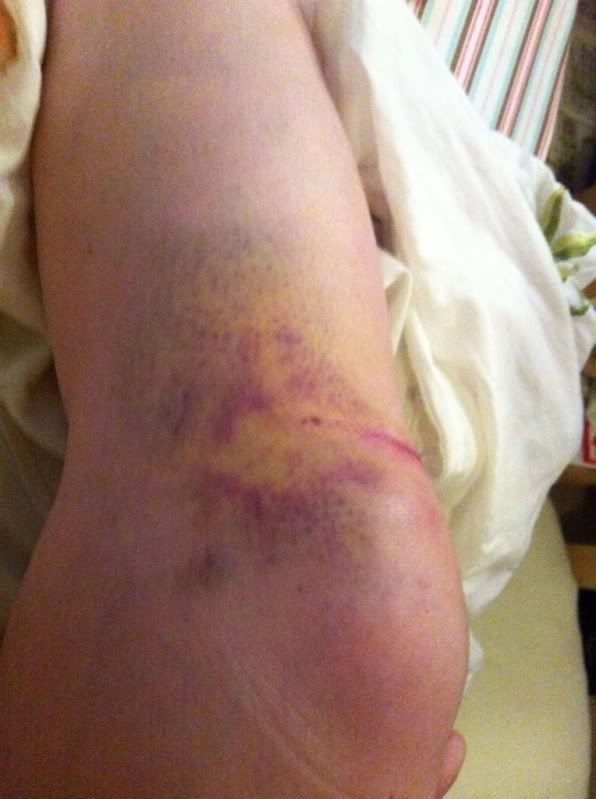When I was able to struggle up from the road surface after being knocked off my bike, the first words that came out of my mouth were worthy of any cycling nut: “Is my bike okay?”
It was – startlingly okay, actually. I fared much worse than the machine. I have stretched tendons and ligaments and bruised bones and atrophied muscles, all of which require considerable sessions of physiotherapy. But ultimately, like my bike, I’ll be okay, unlike James Cross , who was also the victim of an inattentive driver.
I was pleased that there was, coincidental to my accident, a spate of publicity about “doorings.”* I was less pleased at the message of the publicity – that cyclists and motorists shared an equal responsibility to prevent these “accidents”.
Let’s get one thing straight. A “dooring” is not an accident. It is a failure of vigilance, a case of negligence, a lapse of concentration… but not an accident.
Drivers are required under the law to ensure they do not present a hazard to other road users, and whether drivers like it or not, this includes cyclists.
Furthermore, regardless of how defensively a cyclist rides, the laws of physics do not allow them to avoid a hastily flung door, especially when tram tracks or cars driving too close block the cyclist’s ability to veer right.
Separating cyclists to a cycle lane on the passenger side of parked cars is no answer. These lanes are debris strewn and prone to pedestrians wondering across without consciousness that it is a transit zone. Passengers alighting from vehicles are even less likely to be vigilant for oncoming cycle traffic.
This is first and foremost an issue of driver education and law enforcement.
Drivers make decisions every time they open their door in order to avoid the consequences of being a hazard. Are they on a busy road where their door might be ripped off by a passing tram? Are they on a freeway where a speeding car could throw them to the verge? Is their car parked securely? Drivers need to be educated to make the decision to check not just their rear view mirror but over their shoulder and to ask the question: “Is there a cyclist coming?” When they fail to make this decision, they need the compelling persuasion of a ticket, or charges when an injury occurs.
There is currently insufficient emphasis on the rights of cyclists during driver education. Furthermore, there is little energy invested by police in pursuing people who do not make cyclists’ safety a high priority. After my own incident, a police officer explained to me unapologetically that they would not be pursuing even a failure to give way fine had I not been injured badly enough to attend hospital.
My incident was caused by a driver who turned left in front of me, to park. Although he stopped and was very kind and solicitous, he had no comprehension that he was breaking the law by failing to give way and cutting across another vehicle (me). He had his indicator on, he reasoned, so therefore he had the right of way. In this last week I narrowly missed being collected by another driver who was just about to make the same decision and who clearly had no idea that he was doing the wrong thing, despite me giving him a very asserting stop gesture and shaking my head. The comments sections of newspapers which have given this issue publicity have been replete with people who clearly either don’t know or don’t care that the law is firmly on the side of the cyclists.
Of course it is advisable for all cyclists to ride as sensibly and defensively as possible, and always within the law. Cyclists will continue to be injured and killed, however, until the Police and driving educators place a higher emphasis on driver awareness and accountability.
I was not in fact “doored” – ironically, a near dooring seconds earlier slowed my progress so that the left-turning driver hit me at far less velocity than would otherwise have been the case.





No comments:
Post a Comment